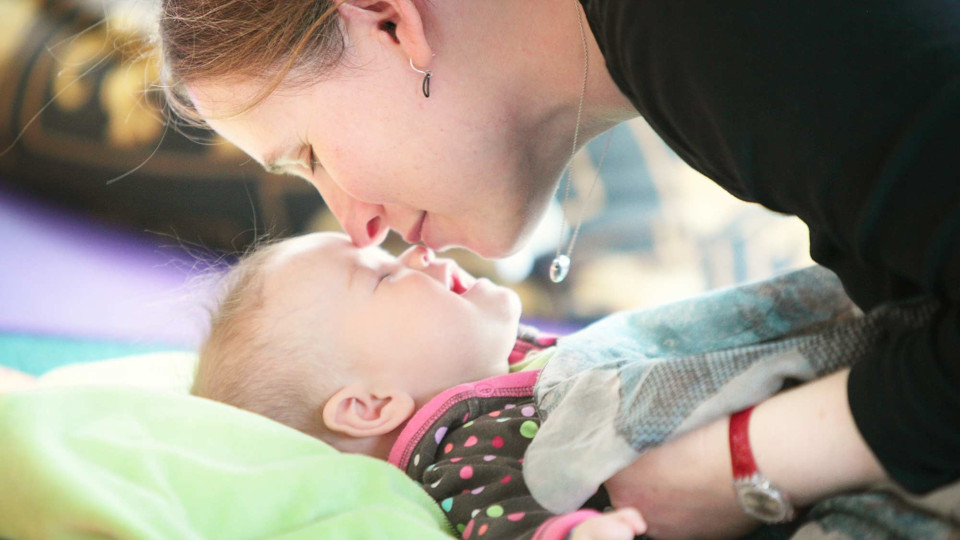
#BabyCommunicationWeek23 #AmazedByBabies #brazeltonuk
Thursday – Brazelton Baby Communication week: Nurturing Sociable Dependers with playful interaction
Within weeks of being born, babies reveal their uncanny sense of humour. Long before they produce irresistible chuckles of delight, they show caregivers that they understand games in playful exchanges. After initial puzzled looks, they differentiate between a face that simulates anger and a real expression of anger. As they internalise the sounds of their mother tongues in continuity from the prenatal to the postnatal months, babies are able to differentiate rhythms in different ambient languages around them. Colwyn Trevarthen’s research has revealed the subtlety and previously unknown sophistication of early musicality. His video of a blind three-month old baby moving her body to the exact beat of a Beethoven sonata is a landmark in the evolving awareness that babies are not only craving for human engagement from birth but are also extremely adept at guiding interactions, in ways that we are only just beginning to understand.
Filmed episodes of mother or father/baby interactions encourage us to realise how purposive human behaviour is from the start. When babies feel love, they wish to express it in return. They use physical movement together with communicative musicality in many forms of pre-verbal language. The more caregivers engage in dialogue, the more rewarding the interaction with babies can be for both them and the babies. Dialogue implies listening, pausing, responding, pausing again with attention to delays as babies’ responses may not be instant. Each baby has a specific pattern in rhythmic playful exchanges of movement or pre-verbal expressions. Understanding this pattern is a supreme form of ‘active bonding’: caregiver and baby are inter-connected more and more. Each new engagement becomes an act of mutual nurture that lightens the daily chores of baby care.
Almost all babies laugh before they are four months old. They only do so in social engagement. The fun is mutual. It’s not just tickling. Very early, human babies have an idea of behaviours they can expect from others. When these behaviours are distorted in a non-threatening way, there is a surprise element that is exciting, whether it’s intentional or not. Then it gets repeated, again and again, as if to seal the fun on both sides, but caregivers can miss babies’ signals that they are disengaging. They need to switch off. Babies’ negative cues (averting gaze, yawning, sneezing) need to be learnt for preventing the effects of overstimulation leading to crying. When endings of the fun are timely in responsive care, sound sleep is more likely to follow, and engagement is a win-win.
In playful interaction, babies’ individual likes and dislikes become clearer, and caregivers can modulate patterns of care. When newborns dislike being undressed even in a warm room, a little rub as they are wrapped or dressed afresh can be a pleasant signal not to despair. Rolling and unrolling babies to lift them up or put them down in a cot or on the floor can transform an often- awkward handling into a dynamic interaction that is safe and comfortable for both caregiver and baby. Swinging a baby towards another person, very gently at first and later more dynamically, often elicits a display of excitement. Babies are wired up to experience up lifts and down swings as enjoyable stimuli for their vestibular systems, with added glee if directed to persons -later to their images in a mirror.
As long-term sociable dependers who rely on adult providers to meet their physical needs, human babies learn cultural codes that caregivers may not even be aware they are transmitting. Do these codes include play or are parents too serious? Mammal parents such as primates or otters can teach us humans a lot in the display of their playful educational engagements with their offspring. This is something that Amazonian Indigenous people are very attentive to.
1 Malloch, S and C. Trevarthen. 2008. Communicative Musicality: Exploring the basis of human companionship.
Oxford University Press.
2 Mireault, Gina et al. 2015. Laughing matters: Infant humor in the context of parental affect.
www.sciencedirect.com › science › article